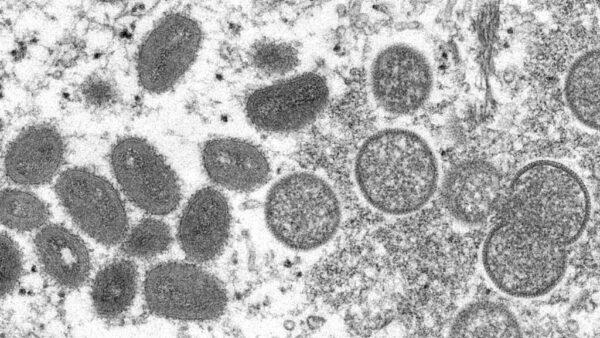
The risk posed to the U.S. general public from ongoing outbreaks of monkeypox cases reported in Europe, the U.K. and Canada is low, a White House official told Morning Edition on Monday.
Dr. Raj Panjabi, Senior Director for Global Health Security and Biodefense at the National Security Council, says the fewer than 10 cases seen in the United States so far have not been severe — “flu-like symptoms and a rash which can be painful but resolves in two to four weeks” — and aren’t likely to get much worse.
“Historically in countries with weaker health care systems less than 1% of patients have died from this milder strain,” Panjabi said. “We have access to vaccines and even treatments here in the U.S., and so the risk we believe is substantially lower.”
In dozens of cases from other U.S. outbreaks over the past 20 years, all patients fully recovered, he said.
The cases so far this month have been limited to fewer than 10 individuals who’ve traveled to affected countries or had close contact with those showing symptoms, he said. The administration’s main goals right now are detecting and tracking new cases so the outbreak can be stopped in the U.S., and making sure vaccines and treatments are available to those who need them.
Earlier Monday, The Associated Press reports, President Biden walked back comments that monkeypox was something to be concerned about, saying instead the virus was not a threat on the level of COVID-19 and did not require strict quarantine measures.
The origins of this current global outbreak — characterized as “rare and unusual” by British epidemiologist Susan Hopkins — have not yet been established, NPR’s Michaleen Doucleff reports, and there is concern that the ongoing spread could indicate a new route of transmission.
Read more about monkeypox outbreaks, and why health officials have concerns despite the low number of cases.
9(MDQ2OTU5NjExMDE2MTkwMTE2MDExMzAxYg000))
[Sign up for Alaska Public Media’s daily newsletter to get our top stories delivered to your inbox.]




